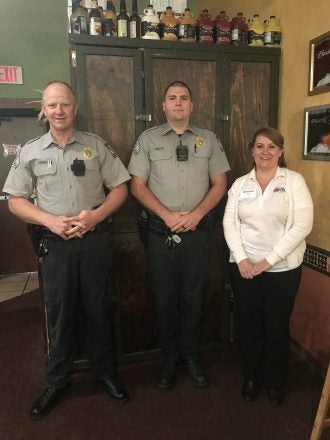Kiwanis Club learns about fishing and hunting impact from DNR
Published 5:00 pm Friday, November 16, 2018
Thursday afternoon the Kiwanis Club hosted the DNR, where they explained their role in the community and the most prevalent issues they see around Georgia.
There are six departments within the DNR: the coastal resources division, the environmental protection division, the historical preservation division, the law enforcement division, the wildlife resources division and the parks, recreation and historic sites division.
Hunting and fishing have a huge economic impact in Georgia, which is why the DNR is so important. 630,000 people hunt in Georgia every year and it counts for $977 million in retail sales, they said. Fishing has 104 million anglers in Georgia and brings in $1.3 billion annually.
Boating estimates a $3.3 billion impact to Georgia, with 335,000 boats registered currently. The DNR believes there are probably more boats that need to be registered, but they realize some are torn up, or haven’t renewed their license in the past three years and the registration has expired.
The DNR is one of the oldest community law enforcements in the state of Georgia. It was started in 1911, and although they are typically referred to as game wardens they are truly conservation rangers.
They work to enforce federal and state laws and protect the environment and people that live in it.
Last year game wardens checked 42,300 hunting and fishing licenses and 33,000 vessels checked. They also held 348 boater safety courses.
Member, Amy Eakin asked if boater safety courses were required to operate a vessel, and as of last year anyone born after January 1, 1998 is required to take the course online or in person before they can drive a boat and receive their license.
The main focus on boating for this year is to decrease the number of BUIs, which officers saw more than 300 of last year. The legal limit is .08 and they need everyone to abide by that to prevent injuries to others on the water.
The DNR also offers different hunter safety courses, such as Jake’s Day, where they are taught to shoot skeet and learn how to bait a hook.
They also discussed the importance of reporting poachers. Not many individuals realize that they can be rewarded for the conviction of poachers if the case is deemed eligible. This year in Bainbridge, people who called about poachers have been rewarded $100 for their information.
The DNR ended their presentation by talking about the different types of ways they protect from aerial to vehicle and airboat. They then stayed and opened up the floor for questions on anything discussed throughout the presentation.






